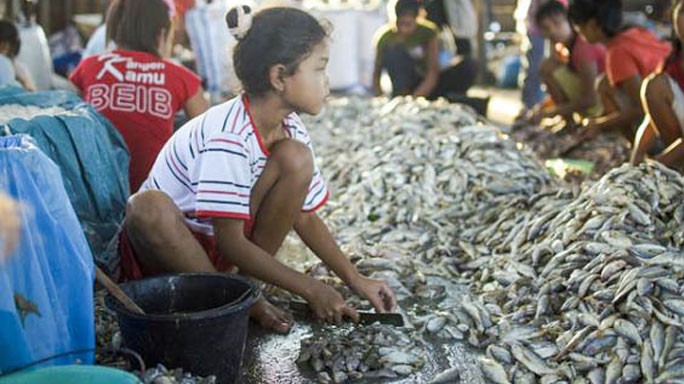A recently released investigation into the working conditions of child laborers in Thailand reveals that a much higher proportion of children in the Southeast Asian country's fishing industry worked with fire, gas, or flames (25.9 percent), compared to other industries (12.7 percent).
Published in Bangkok on September 14, the study by the International Labor Organization (ILO) and The Asia Foundation also found that 23 percent of children in the shrimp and seafood industries were working in wet and dirty conditions. At the same time, about 20 percent of them reported workplace injuries - compared to 8.4 percent in other industries.
"Child labor is truly unacceptable in the 21st century," said Maurizio Bussi, officer-in-charge of the ILO's Country Office for Thailand, Cambodia and Laos. "Unfortunately, it remains a symptom of existing labor market governance challenges, coupled with a lack of genuine alternatives for vulnerable workers and their families to freely avail of," he added.
A crucial industry
The fisheries sector is of vital importance to Thailand's economy, and the country is one of the world's top ten fishing nations in terms of total catch. According to the Food and Agriculture Organization (FAO), the nation ranked third (behind China and Norway) in 2010 in the top-ten exporters of fish and fisheries products, with a value of $7 billion (up from US$4 billion in 2000).
See more at:
DW





